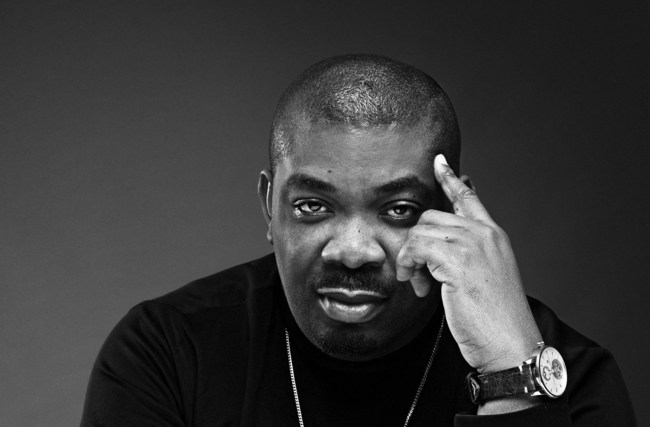Special for Mshale
A prominent and highly-influential Washington journal, The Atlantic Monthly, has laid out a scenario which suggests that the may attempt an Iraq-type invasion, or at least military intervention, in
. The scenario pointing to US military intervention in is based on assumptions not unlike those that led to the invasion of .
The April edition of The Atlantic Monthly published its scenario under the headline, “Worse Than Iraq”. The opening passage of the report makes the claim that: “’s president and onetime hope for a stable future is leading his country toward implosion – and possible military intervention”.
The author of the article, Jeffery Tayler, explained that ’s “ethnically and religiously combustible population… is lurching toward disaster, and the stakes are high – for both and the ”. Of particular concern is access to Nigerian oil.
“An OPEC member since 1971, has 35.9 billion barrels of proven petroleum reserves – the largest of any African country and the eighth largest on earth. It exports some 2.5 million barrels of oil a day, and the government plans to nearly double that amount by 2010. is the fifth-largest supplier of oil to the ; energy officials predict that within ten years it and the
Gulf
of
Guinea
region will provide a quarter of ‘s crude.”
“It is hardly surprising … that since 9/11 the Bush administration has courted as an alternative to volatile petro-states in the Middle East and
Latin America
. In 2002, the White House declared the oil of Africa (five other countries on the continent are also key producers) a "strategic national interest"—meaning that the would use military force, if necessary, to protect it. In short, ‘s troubles could become ‘s and, like those of the Persian Gulf, cost us dearly in blood and money,”
Taylor
wrote.
At first blush, the suggestion that the may use military force to effect “regime-change” in order to secure its oil interests , or any other African country, does indeed seem absurd. However, there may be some veracity to the The
Atlantic
Monthly’s scenario. In a study on Washington’s strategic military objectives for the 21st century, the Centre for Strategic and Budgetary Assessments (CSBA) makes it clear that there is “no doubt that the (was) in the regime-change business”.
Andrew Krepinevich of the CSBA, a Washington think tank, seems convinced that the has indeed assumed a role which one is tempted to describe as global vigilantism (the online Merriam-Webster Dictionary includes definitions of a vigilante as a ‘self-appointed doer of justice’, one who ‘would summarily punish’ criminal behaviour).
In the CSBA Study, Krepinevich makes the following argument: “Since the fall of the Berlin Wall, the has, on average, deposed the regime of a foreign state roughly once every three years. , , , and have each seen their despotic regimes turned out, directly or indirectly, by force of American arms.”
The Atlantic Monthly’s scenario of a possible intervention in ties the loss of oil revenues and overall reduction in crude production to “corruption” at the highest levels of government. As the Washington journal went to press last month, the The Guardian newspaper in Nigeria reported a 26 percent decline in crude oil production; a direct outcome of an explosion on the weekend of 18/19 March at a pipeline owned by the Italian multinational company, Nigeria Agip Oil Company (NAOC). While there was some disagreement at the time over whether the explosion was caused by vandalisation or a by rupture of the pipeline, the only certainty, according to The Guardian, was that Nigeria’s production capacity had been reduced to 631,000 barrels daily – 26 percent reduction in capacity. Before the weekend explosion, the hostage taking saga and militancy in the region had reduced the production level by 20 percent.
According to Tayler, Nigeria’s political leadership, has shown little interest in tackling crime, the neglect, and inefficiency rampant in the oil sector, or the tapping into pipelines and siphoning oil into makeshift tankers hidden in the swamps of the Niger River Delta. This practice of “bunkering,” he explained, is responsible for the loss of some 200 000 barrels a day, and for catastrophic fires that have incinerated local folk who try to scoop up the runoff from punctured oil pipelines.
“Criminal gangs with government connections are said to be behind the practice—who else could hire the needed equipment? During his first term, (Nigeria’s President Olesogun) Obasanjo established a development commission to distribute oil revenues among the country’s indigenous peoples, but its efforts have come to naught; most of the windfall oil profits of the last few years have gone toward refurbishing mansions for the elite. Oil spills and gas flares blight the delta, ruining farmland and poisoning fishing grounds. Owing to the abysmal state of its few refineries, remains an importer of gasoline. Officials divert gas from the pumps and sell it on the black market. Fuel shortages are endemic,” wrote Tayler in The Atlantic Monthly.
These are the bases of the scenario which, according to The Atlantic Monthly, suggests that military intervention may be moving from a possibility to a probability. There is, however, no indication from official sources in Washington that the is on any kind of war footing, with regard to .
In fact, in a statement released by the White house before Bush’s visit to Nigeria in July 2003 the President was questioned by African journalists about possibly switching US oil interests from Saudi Arabia to Nigeria. In reply, Bush said: “Well, conspiracy theorists about everywhere, I guess. That’s one of the most amazing conspiracies I’ve heard. Heck, no one has ever made that connection, and so I would say – well, first, look, I have been talking about
Africa
since I was sworn-in as President. I’ve met with 22, I believe it is, heads of state here. And I have met with President Obasanjo, gosh, I would say – I better be careful, because every number I put out there, people scrutinize – a lot, maybe five times….”
“I have got good relations with President Obasanjo. Every time we have visited it has been a very cordial, up-front way. I appreciate his cooperation on the ‘s desire to work with countries such as to train troops necessary to be able to handle some of the difficult situations on the continent. As a matter of fact, I believe the in working with has trained five battalions of Nigerian troops, preparing them for issues such as – or other areas on the continent. And we will continue that relationship with the President of Nigeria. And I appreciate his leadership on that issue.”
For now, it seems, there is only speculation of US military intervention in Nigeria; speculation which has to be seen in the context of Washington’s oil “interests” and the global vigilantism implicit in the CSBA’s study.
About Ismail Lagardien






